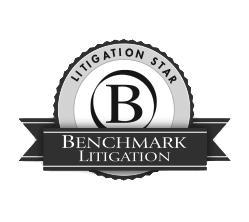Taking on Big Pharma: Dozens of Class Action Pharmaceutical Lawsuits Currently Pending
Call 410-825-5287 for a free medical malpractice consultation
 Many pharmaceutical companies, not fondly known as Big Pharma, have a long, scandalous history of pharmaceutical corruption, and use less than ethical marketing tactics, which causes harm to millions of people around the world. Deep pockets and significant influence in the U.S. political system have resulted in many drugs being rushed through the FDA approval process and sold to consumers without forewarning of potential risks. In some cases, drug manufacturers have been known to conceal undesirable safety data while trusting and unknowing consumers develop side effects they did not realize they were bargaining for. More people are recognizing the likelihood of harm associated with many of these drugs and are willing to stand up for their right to safe medications. Class action and mass tort pharmaceutical lawsuits assist in holding organizations responsible for their actions; currently, dozens of lawsuits involving medications are pending against giant drug corporations and the pharmaceutical industry at large.
Many pharmaceutical companies, not fondly known as Big Pharma, have a long, scandalous history of pharmaceutical corruption, and use less than ethical marketing tactics, which causes harm to millions of people around the world. Deep pockets and significant influence in the U.S. political system have resulted in many drugs being rushed through the FDA approval process and sold to consumers without forewarning of potential risks. In some cases, drug manufacturers have been known to conceal undesirable safety data while trusting and unknowing consumers develop side effects they did not realize they were bargaining for. More people are recognizing the likelihood of harm associated with many of these drugs and are willing to stand up for their right to safe medications. Class action and mass tort pharmaceutical lawsuits assist in holding organizations responsible for their actions; currently, dozens of lawsuits involving medications are pending against giant drug corporations and the pharmaceutical industry at large.
Pending Lawsuits Against Pharmaceutical Corruption
The following is a partial list of medications which have led to pending class action or mass tort lawsuits against pharmaceutical corporations:
- Byetta - This injectable medication for type 2 diabetes has been shown to triple the risk of developing pancreatic cancer. Amylin Pharmaceuticals was likely aware of this potential risk before marketing the drug to the public. Victims believe Amylin failed to properly warn consumers of the dangers of this highly promoted drug.
- Depakote - Doctors have prescribed Depakote to people suffering from seizures, bi polar disorder and migraines. Pregnant women who took this medication have been shown to have an increased likelihood of giving birth to a child with congenital defects. Abbott Laboratories is said to have failed to properly warn physicians of these potential risks and was known to market the drug for off label uses.
- Effexor - Serious congenital defects have been associated with the use of this antidepressant medication during pregnancy. Claims allege Wyeth was aware that Effexor crossed the placental barrier but continued to market the drug despite the existence of safer alternatives. The FDA required Wyeth to update the warning labels on Effexor in 2004 to clearly emphasize risks to the developing fetus.
- Paxil - The antidepressant medication Paxil has been shown to cause birth defects when taken by pregnant women and is linked to an increased risk of suicide in young adults. The FDA required Glaxo Smith Kline to utilize stricter warning labels beginning in 2005, yet countless young individuals had already been harmed by this dangerous medication.
- Risperdal - This antipsychotic medication has been linked to the development of excessive breast tissue in young men and boys. Janssen is reported to have marketed the drug for off label uses and is said to have utilized misleading information in their marketing campaigns. Safer alternatives were also known to exist.
- Topamax - Mothers who took this medication for their epilepsy or migraine headaches while pregnant were more likely to give birth to a child with cleft palate or cleft lip. The FDA changed the classification of Topamax to a category D drug in 2011 to strongly emphasize the risk to unborn children. Janssen Pharmaceuticals was known to have marketed the drug for multiple off label purposes.
- Zofran - Sadly, many women who were prescribed Zofran to treat morning sickness during pregnancy have given birth to babies with heart, mouth and/or musculoskeletal deformities. GlaxoSmithKline had reportedly been marketing the drug to physicians as a morning sickness medication despite never having received FDA approval for said such purpose.
- Lipitor - Pfizer, Inc., manufacturer of this cholesterol reducing statin medication, is said to have long been aware of the increased risk of developing type 2 diabetes while taking Lipitor. Appropriate warning labels were not used on the product until 2012, however, when the FDA required this side effect to be clearly explained to consumers.
- Zoloft - Pfizer, Inc. also manufactures the antidepressant medication Zoloft which is associated with a risk of serious birth defects, some of which may be fatal. Pfizer is said to have had knowledge of this risk before marketing the drug to the public and is believed to have concealed the data for many years.
A Disproportionate Number of Pharmaceuticals Involve Birth Defects
It is disheartening to note the number of currently pending lawsuits against Big Pharma involving medications that resulted in babies born with birth defects. The FDA acknowledges that fewer than 10 percent of all new drugs have sufficient data to clearly support safe use for pregnant women. Medical professionals are given the liberty to weigh any potential benefits of these drugs against the unknown risks and are permitted to make recommendations to their patients regarding which prescriptions they believe should be utilized. Ultimately, the decision to take any medication lies with the consumer, yet many are not provided all relevant information and simply trust in their doctor to supply wise advice. Patients who have been harmed are highly advised to contact a professional attorney as soon as possible, as the statute of limitations restricts the amount of time to file a lawsuit.
Accolades for Weltchek Mallahan & Weltchek
OVER $600 MILLION IN VERDICTS & SETTLEMENTS FOR OUR CLIENTS




